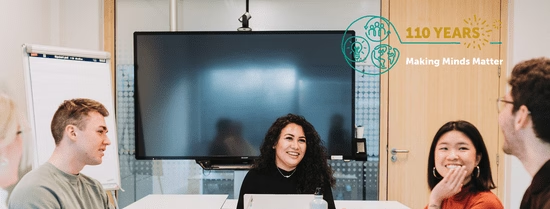Karen Maas is a professor of accounting and sustainability at the Open University and also the academic director of Impact Centre Erasmus at Erasmus University Rotterdam. In an interview, she shared with us four tips for everyone eager to make an impact with their research.
Written by Rachel Williams at the Design Impact Transition (DIT) platform
Now is the right time to change
If you’re still wondering whether you should engage in impact-oriented work, Karen has got your back: "If we really want to change, now is the right time to initiate it," she says. She thinks that right now "de wind waait mee" [the winds blow in our direction].
This can be seen in the number of universities shifting their mission towards impact. Erasmus University, for example, aims to create "Positive Societal Impact". However, Karen notes that there are key questions which need to be answered by the university in order to successfully implement this goal. “What do we mean by positive societal impact? Why do we want this? How can we achieve positive societal impact? What can be your role? Why, what and how should you change to contribute?”
Is your research transformative or Impactful?
Before you shift towards impact-oriented research, be clear about what you're trying to achieve. Karen notes that there are many different terms around research, like transformation and impact. To her, transformative means you do research that really changes the systems. While impactful research could fit within a current system. She sees value in both approaches. "Of course, we need transformative innovation, but that doesn't mean that you can't do anything now within the current system."
Build bridges between practice and academia
To be truly impactful, you need to collaborate with stakeholders outside of the university who request impactful research. As a researcher, Karen points to one benefit of "doing applied research [is] you're capable of attracting lots of funding for research." It is important to recognize the challenges which are related to this, it's not always research that is easily publishable in the most sought-after journals.
Build networks with like-minded colleagues and creating structures for impact-oriented work
Since current academic structures do not fully support impact-oriented work, you may think you are alone with your challenges. Karen recommends you connect with colleagues and help each other innovate. Powerful resources may already exist within your workplace or you yourself. Karen points out "that within departments, we should build up an inclusive team with diverse people and you should really value what [people] are capable of doing.”
Karen also actively works on adjusting the university system to build support for more impactful research. She is "interested in helping those build support for more multi-disciplinary research" and is happy to see many bottom-up efforts at EUR. But to succeed, the board and deans must be involved in steering these actions "because universities are very hierarchical, and they must involve the deans who have a key role to play within their faculty. To reach the crucial next steps to change the system for impact research "I really think that the first step would be to change to the evaluation system."
She recommends EUR's leadership to take a first step by changing the evaluation system. According to her, other evaluation schemes should exist... The benefit? “These options create opportunities for valorization for those unable to publish their research in a highly ranked journal then at least you're valued by the valorization you achieve with it." For Karen, valorization can mean "bringing your research to practice and making sure that in practice, it does something. Either it's used or it's informative or it's spread."
- CV
Prof. dr. Karen Maas is endowed professor of Accounting and Sustainability at the Open University of Heerlen and academic director of Impact Centre Erasmus (ICE) at the Erasmus University Rotterdam. Karen conducts research in the areas of impact strategies, measurement and management, sustainability and impact investing. Karen worked with many profit, non-profit and financial organizations to measure, drive and manage their impact. Karen is a supervisory board member of various organisations. She is also a member of the Sustainable Finance Lab and the Sustainable Pension Investment Lab. Her work has been published in books, scientific journals and newspapers.
- More information
About the author
Rachel Williams is a MSc student at Wageningen University studying Climate Studies in environmental economics who is passionate about just transitions. She has been working at DIT Platform as a Research Assistant for transdisciplinary research and contributes to the study group on action-oriented research.
About the Design Impact Transition (DIT) platform
The Design Impact Transition (DIT) platform creates infrastructures for transformative academic work at Erasmus University Rotterdam (EUR). Read more about our work here.

